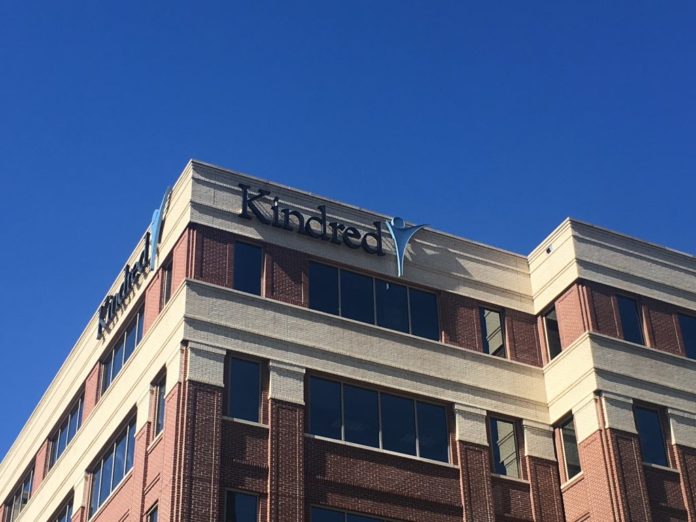Kindred Healthcare (NYSE: KND), the nation’s largest home health provider, is one step closer to being taken over by insurance giant Humana (NYSE: HUM) and two private equity groups. Kindred filed a preliminary proxy statement with the Securities and Exchange Commission on Monday, in advance of a special meeting of the stockholders to be held in April or May, at which they will vote on the proposed $4.1 billion transaction.
Also on Monday, Kindred released an updated investor presentation, shedding more light on the strategic review that resulted in the sale of the company, and underscoring the challenging environment that home health providers are facing.
Between Dec. 2016 and Dec. 2017, the Kindred board of directors and/or the four-person transaction committee met more than 20 times to consider strategic alternatives, according to the presentation. That process began after a suitor materialized in Nov. 2016, following the company’s announcement that it would exit the skilled nursing facility (SNF) business.
Over the course of the strategic review, 15 financial sponsors and three strategic parties were involved in talks with Kindred. Furthermore, the transaction committee considered divestitures, spin-offs, capital raises and other moves to improve the enterprise’s position and ultimately rejected all of them as inferior to the sale of the company. That deal was announced in late December, and involved Humana and the private equity groups acquiring Kindred’s home health business and the PE firms alone acquiring Kindred’s long-term acute care hospitals, inpatient rehabilitation facilities and contract therapy business.
Kindred’s high net leverage—currently at 6.3-times the last twelve months’ adjusted core EBITDA—was one major factor motivating the Humana/PE acquisition and limiting the viability of some other options, the presentation makes clear. However, the deal was also seeking to maximize shareholder value and enterprise stability in the face of reimbursement uncertainties and labor pressures—two big issues looming over the home health sector as a whole.
There is persistent pressure from Medicare Advantage and other payors to reduce post-acute care utilization, while traditional Medicare reimbursement could also be cut substantially to offset deficits created by the recently enacted tax reform package, the presentation notes. The recently floated Medicare overhaul known as the home health groupings model (HHGM), though at least temporarily on hold, also signals that home health revenue frameworks are far from stable.
Labor pressures have been another drag on Kindred, considering that salaries, wages and benefits related to patient care totaled about 55% of revenue for the nine-month period ending Sept. 30, 2017. There is a risk of “further margin pressure from wage inflation due to caregiver shortages in an economy already experiencing abnormally low levels of unemployment,” the presentation states.

The release of the preliminary proxy statement on Monday was the third step out of six on Kindred’s “roadmap to completion” for the deal.
Next up is the shareholder meeting in the spring, after which state regulatory approvals need to be obtained. Then, the deal would close in the summer of 2018 if all goes according to plan. After that, eligible shareholders would receive $9 in cash for each common share and the company would be de-listed from the New York Stock Exchange.
This deal is moving forward at the same time that another industry-transforming transaction is in process. In Nov. 2017, Lafayette, Louisiana-based LHC Group (Nasdaq: LHCG) and Louisville-based Almost Family (Nasdaq: AFAM) announced that they would be merging in a $2.4 billion deal. Late last month, the two home health providers had a hiccup in their process, re-filing paperwork with the Federal Trade Commission.
Written by Tim Mullaney




